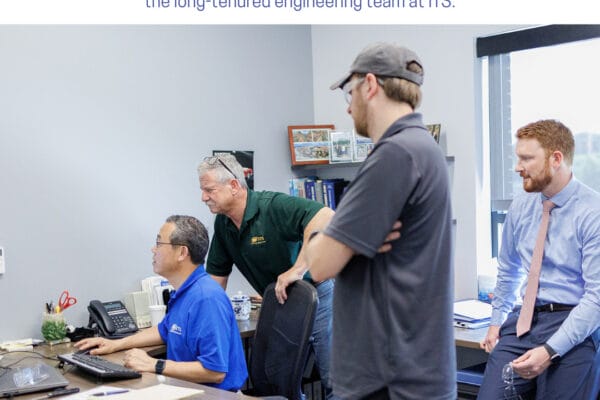TOP TEN CRITERIA TO CONSIDER WHEN PURCHASING A CONVEYOR OVEN
By Mike Stamm
How to select an industrial oven?
Conveyor Ovens are one of the most versatile and widely used ovens in the heat processing industry. A conveyor oven can be used for preheating, curing, drying, thermal degreasing, form setting and baking. Because conveyor ovens offer so many processing options, they are used in a wide variety of industries. Many oven manufacturers have added standard sized conveyor ovens to their product lines. A standard oven is pre-engineered and is available in specific sizes and offers reduced costs and a quick delivery time. If the part size, weight, quantity of parts and heat processing requirements fit within the guidelines of a standard oven, then this may be a cost-effective, quick delivery option. Modified Standard Ovens are also available and allow for various modifications or various options while still maintaining the price point advantage of a standard oven.
Cost or delivery time may not be the main factor when making a conveyor oven choice. It is YOUR process. If the process does not fit within the design specifications of a standard oven then a custom conveyor oven can be designed specifically for the process and part. The number of parts per hour, time in the oven, operating temperature, type of belt, and dimensions of the oven openings are all considerations when designing the oven.
Listed are the top 10 criteria to consider when deciding between a standard or a custom conveyor oven.
- Part Loading
Standard conveyor ovens are an optimal choice when the parts can be manually or automatically loaded onto the standard size entrance stand and no special belt or pallet/part holders are required. If the part does not fit within the standard size range, then a custom oven would be required.
- Part Size and Weight
An oven can be built to accommodate any part size or weight, but if your part fits within the standard sizing, mark one up for a standard oven!
- Controls
Each manufacturer will offer a standard controls package with basic functions. If your process requires additional controls (e.g. ramp and soak, multiple set points, data acquisition, etc.) not offered in the standard control package, a custom control package can be designed to meet your application.
- Temperature
Standard conveyor ovens are designed with a maximum operating temperature. If this falls within your requirements, then a standard conveyor oven may be right for you. A custom conveyor oven offers the option to be designed with multiple temperatures and multiple zones.
- Heat Source
A custom conveyor oven can be designed around any heating medium. (e.g. gas, electric, oil, steam).
- Load Height
Standard Conveyor Ovens are offered with load heights with small adjustments predetermined by the manufacturer. Custom Conveyor Ovens can be designed to your process requirements.
- Exhaust
Standard Conveyor Ovens are specified with pre-designed exhaust rates. Custom ovens are designed to your requirements (e.g. no exhaust, gravity exhaust, power exhaust).
- Air Flow
Standard Conveyor Ovens are offered with pre-designed air flow arrangements while custom conveyor ovens are designed to specific requirements (e.g. vertical, horizontal, combination, direction, volume, high/low velocity).
- Materials of Construction
Standard conveyor ovens are typically manufactured from steel or aluminized steel and custom conveyor ovens can be designed with many material options based on the application (e.g. aluminized steel, stainless steel, etc.).
- Certifications
Standard Conveyor Ovens are based on manufacturer’s standard design. Custom Conveyor Ovens are designed to meet your requirement (e.g. Underwriters Laboratory, CE, CSA, etc.).
Conveyor ovens are very versatile and are a good fit for many industry applications. Once you create a specification list based on criteria above, you will have a better understanding if a standard or a custom oven is the best option for your process. Download this article.



